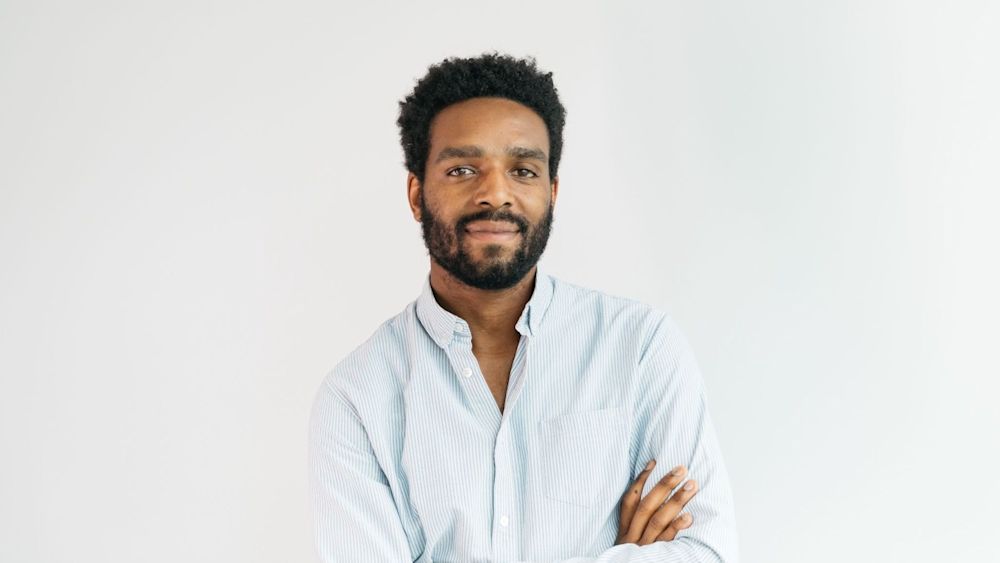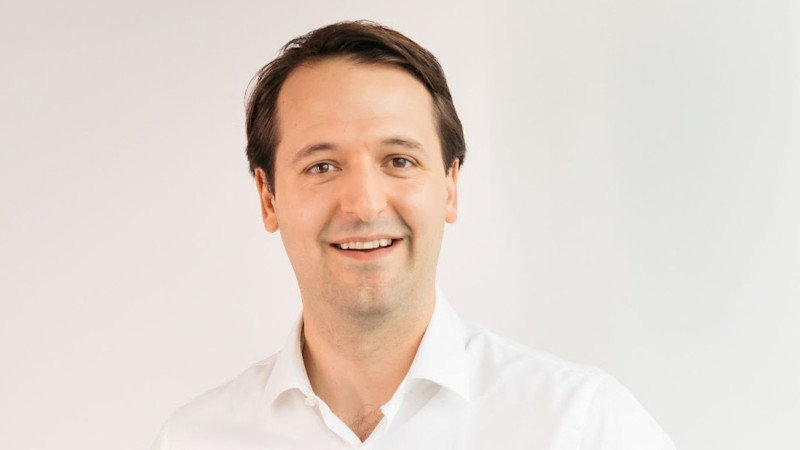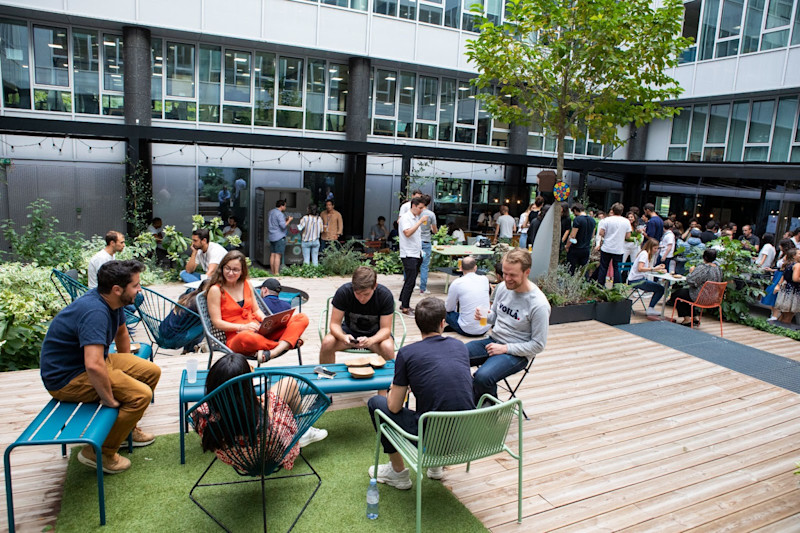- Iterate
- Meet The Team
- How Chief People Officer Matthieu Birach Fuels European Unicorn Doctolib With Talent
How Chief People Officer Matthieu Birach Fuels European Unicorn Doctolib With Talent
Table of contents
In an interview with The Org, Chief People Officer Matthieu Birach at Doctolib shared how he found a career in human resources without planning for it, what makes Doctolib’s culture different and his vision to modernize how companies take care of HR matters.

Learning as ambition
Looking at Birach's resume, one has to wonder how spending four years as an M&A associate at financial services stalwart Rothschild led to becoming Chief People Officer (CPO) at a unicorn startup. A series of bold moves, it seems.
Birach, who grew up in a suburb in the south of Paris, comes from a modest family. "I was lucky to have parents who cared a lot about education," the CPO explained. Despite coming from a high school located in a difficult area, the young man, who says he was a “serious student,” managed to get accepted at the prestigious Lycée Lakanel to prepare for business school competitive exams.
Admitted at top-tier business school EMLyon two years later in 2007, Birach decided to join Rothschild as an M&A associate after graduation. "I didn't know what I wanted to do after business school but I knew I wanted to keep learning, plus I had a student loan to reimburse so finance felt like a compelling career choice,” he said.
After four years, Birach realized his learning curve would slow down if he stayed in the finance industry. After quitting his job and taking some time off, Birach needed to figure out his next career move. That's when he became curious about startups. Back then, in 2015, the French tech ecosystem was blossoming, but it was still a risky bet to go work for a startup. "I did a lot of interviews and received a lot of no's. The companies I was meeting with were suspicious about the value I could bring as a former finance guy and most of them assumed my salary expectations were out of their league,” he recalled.
From launching a Belgian food delivery startup to becoming Chief People Officer at Doctolib
After looking at all sectors in tech, Birach ended up applying to work at Belgian food delivery startup Take Eat Easy. Founded in 2012, the young startup was growing fast and looking to expand in France. Birach was hired as a business developer to launch the service in France, and was the first employee of the Paris office. He eventually became Managing Director for France. "I worked there for two years. I learned the ropes of working in a startup. I also got involved in many HR-related topics as launching operations in another country involves recruiting and managing a team,” he said. When Birach left Take Eat Easy, the team had grown to about 150 people.
The food delivery segment in France quickly became crowded with dozens of French and foreign startups operating in the capital and other French cities. Take Eat Easy eventually shut down in 2016. Birach, who had grown the business to $3.23 million (3M€) in monthly gross merchandise volumes, met with various tech executives and investors to figure out his next step.
"That's when I met Stanislas, Doctolib’s CEO, thanks to an investor who reached out. At that time, I didn't have any affinity with the health industry, quite the contrary. My family had had many health issues so health was actually a worrisome topic for me,” he said. “But what piqued my interest is that Stanislas had this vision that tech could facilitate access to health and make it more transparent. That mission resonated with me."
Given Birach's experience at Take Eat Easy, the CEO of Doctolib found in Birach the right person to supervise operations in Germany. While the startup had recently launched in Germany the team over there was composed of only a handful of employees. Birach joined Doctolib in 2016 as its International Expansion Director. "On my first week, I was sent to Germany. Because we had to adapt to the German market which is very different from France, we had to start from scratch. It was a great opportunity for me to understand the DNA of the company and its business model,” he said.
After two years, the German entity has grown, and Birach's mission changed from launching initiatives to structuring the business. “At the end of the day, even if my role was strategy-related, most of my days were spent taking care of HR matters," Birach said. In parallel, Doctolib's founders had been looking for someone to oversee the HR team for six months without success. "One day, the CEO offered me the job. I didn't expect it. I knew the topic of people was interesting to me but I had never planned or projected myself doing HR,” Birach said. “I had worked closely and extensively with the CEO during the two years during which I was taking care of the German market so he saw me taking care of the team over there. It was a risky bet but it didn't take me long to say yes. I don't know if I would have made the move in another company or if I'll do it tomorrow for a company but for Doctolib it made sense."

Humility as one of the cornerstones of Doctolib’s company culture
Birach’s first interaction with Doctolib gave him a good sense of the company's culture. “When I came for my interview, the team was working from an apartment. There was no receptionist and no buzzer, you had to knock on the door and wait for someone to open it,” he recalled. “As a good student, I arrived a bit earlier and was asked to wait on a chair at the entrance. Many people were passing by and every one of them kindly asked me if I wanted a glass of water, who I was meeting with, or if they could help me with anything. That kindness and caring attitude gave me a great insight into Doctolib’s culture."
What stuck with Birach was the CEO's philosophy. "To him, to be a successful entrepreneur you have to learn three things every day. There's a lot of humility in him and it's why humility was part of the first values of Doctolib." It was clear to Birach that the culture emanated from Niox-Chateau's personality. "What strikes me with Stanislas, and generally speaking with people at Doctolib, even senior executives, is the capacity of questioning oneself. In fact, if we don't see this personality trait in candidates we don't hire them."
Having strong cultural values makes hard choices easier. "The pandemic started a year after I took the role of Chief People Officer. There were so many things to handle at the same time, it has been an enduring experience," he said. As French people confined themselves during the COVID-19 pandemic, Doctolib, whose service was popular, saw a peak in activity as it worked closely with the government on vaccination.
"What is hard in those times of incertitudes is that even though there are so many parameters moving and a lack of visibility you still have to make decisions. So you need to have a few fixed parameters on which to base your decisions. When the culture is strong, it becomes the way you make decisions. Our second value is ‘care’ so we didn't second guess what we needed to do.”
The philosophy behind ‘Chief People Officer’
Asked about why he picked Chief People Officer as his job title instead of the traditional Director of Human Resources (DRH), Birach explained: "There were two reasons. The first one, it's maybe vanity, but I felt it sounded better. The other reason is that it's also a way of distinguishing ourselves from the usual way HR has been managed in France. I believe the concept of employees being seen as a "resource" is very limiting and blind. People should not just be considered for their capacity to produce but as individuals. Electricity is a resource, humans? I don't think so."'
Taking on this new role, Birach was now managing a team of 20 members overseeing all people-related topics for back then 500 employees. That represents a pretty big ratio when compared to other startups and that number certainly speaks for itself. "The team has always been serious about the people's topic so they invested a lot of resources early on and keeps doing it. Three years later, we're now 200 people out of the 2,400 employees."
Building such an important people team that fast required finding a lot of talent quickly. Birach's vision was to broaden the scope and hire people who, like him, didn't necessarily have experience managing HR projects but had the right approach. "The team is composed of people coming from marketing, product, and we even have a person with a tech background," he shared.
Recruiting quickly became an important topic as the company was growing at a fast pace. Sourcing candidates was challenging. As the tech ecosystem became more mature in France, a war for talent led to a higher turnover as well as competitive salaries, especially as giants like Facebook, Google and Amazon could offer very high salaries. "We used sales and marketing concepts to develop a go-to-market approach to hiring. Hiring for full-stack positions isn't the same as hiring for business developers. This vision led us to segment our needs and specialize our hiring teams," he said. The team dedicated to recruiting went from seven people when Birach took over HR to now 90 people.

How Doctolib hires for diversity
Another strategic decision to fill all the open positions in all the departments was to "expand the playing field." By broadening the scope of education institutions and past experiences required from candidates, the team started to look for young graduates or experienced senior executives in places and industries most startups would disregard. "There is an imbalance in supply and offer. The challenge is to hire a lot of people without lowering your standards or offering excessive salaries,” he said. “So we had to question and reshape our hiring process to remove our biases and look at other pools of talents we've had overlooked until then. We worked on our job descriptions, on how we trained our managers to hire, so we could expand our horizons and make bolder but right bets."
Another cornerstone of Doctolib's HR politics is the Doctolib Academy. Born in the first years of the company, the program provides training to employees to enable them to move to the roles they're the most attracted to. "Keeping talent is as hard as hiring. Facilitating internal mobility is the best way to make sure employees remain happy and fulfilled in the company," Birach said.
Retaining team members is especially complex, as Birach observed that younger generations are more concerned with their career paths than their older counterparts. At Doctolib, all employees have a one-hour conversation with their manager every year to talk only about what they want to do in one, three and five years, and discuss the skillset they consequently need to develop. The company, which has a 30-person learning and development team, produces its own training content too. “We also work with external partners, an English teacher was even hired early on to support Doctolib's employees as the company was becoming more and more international,” he said.
The company has set up an internal survey to monitor its employee engagement score, its NPS and a few other KPIs. Every two weeks, each employee is asked to answer a few questions on various topics, which enables the HR team to spot challenging topics early on. "Our vision for work is that it's not the only thing in life and that it should be fulfilling. We let people organize themselves and we believe that having five days of the workweek is a good way to nurture flexibility. We also give our team members the choice to work from where they want. Today, our employees are split between 10% working at the office full-time, 80% working hybrid with two or three days at the office per week and about 10% people working full-remote."
Is there a proof that Doctolib’s approach to HR makes a difference? Probably not, but there’s a good clue that the company is on the right path: It was ranked 11th in the latest nation-wide ranking of the most admired French companies, behind decades-old emblematic companies such as Décathlon, L’Oréal, Michelin and Danone, and was the first of the only two startups featured in the list.
Sign up now: Stay up to date, level up and hire better with our behind the scenes newsletters at the world’s top startups.
In this article


The ORG helps
you hire great
candidates
Free to use – try today